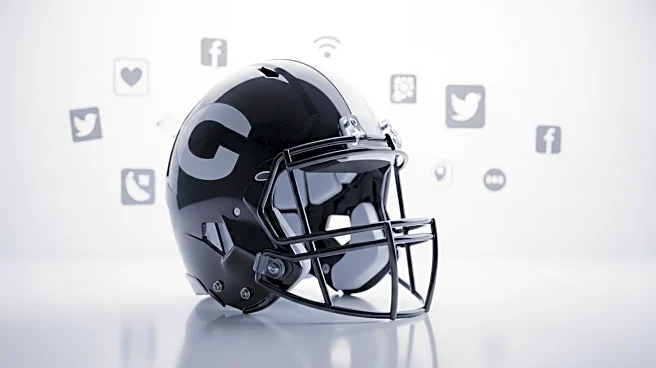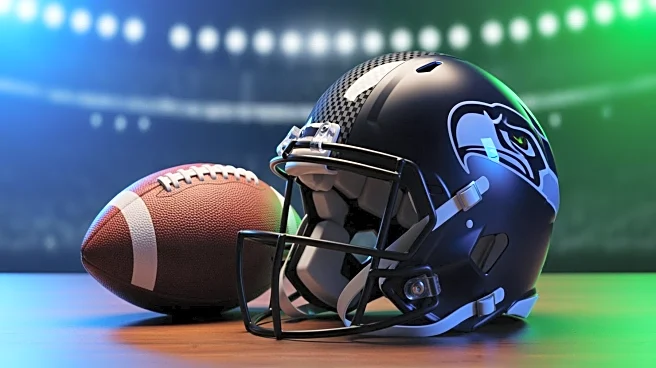What is the story about?
What's Happening?
Former NFL quarterback Matt Hasselbeck has expressed his belief that social media significantly influences how NFL teams make decisions regarding their depth charts. In a conversation with The Athletic's Zak Keefer, Hasselbeck compared the current reliance on social media to the past use of newspapers by team owners and coaches for decision-making. He stated that decisions are now being made based on social media feeds, indicating a shift in how information is consumed and utilized in professional sports. This assertion comes amidst various depth chart battles in the NFL that have been closely followed and discussed on social media platforms. Notably, rookie quarterback Jaxson Dart was promoted to serve as Russell Wilson's backup, a decision that followed significant social media attention. Similarly, Cleveland Browns quarterback Shedeur Sanders has been a focal point of fan discussions online as he competed for a backup role.
Why It's Important?
The influence of social media on NFL team decisions underscores the growing impact of digital platforms on professional sports. This shift could affect how players are evaluated and promoted, potentially prioritizing public perception over traditional scouting and coaching assessments. Teams may increasingly consider fan engagement and social media buzz when making roster decisions, which could alter the dynamics of player management and team strategy. This trend highlights the importance of digital literacy and media management for athletes and teams, as social media presence could become a critical factor in career progression. The broader implications extend to sports marketing and fan interaction, as teams might leverage social media to enhance their brand and connect with audiences.
What's Next?
As social media continues to play a role in sports management, teams may develop strategies to monitor and analyze online discussions to inform their decisions. This could lead to the integration of social media analytics into scouting and coaching processes. Players might also focus on building their social media presence to influence their career opportunities. Additionally, sports organizations could face challenges in balancing public opinion with professional assessments, potentially leading to new policies or guidelines regarding social media use and its impact on team operations.
















